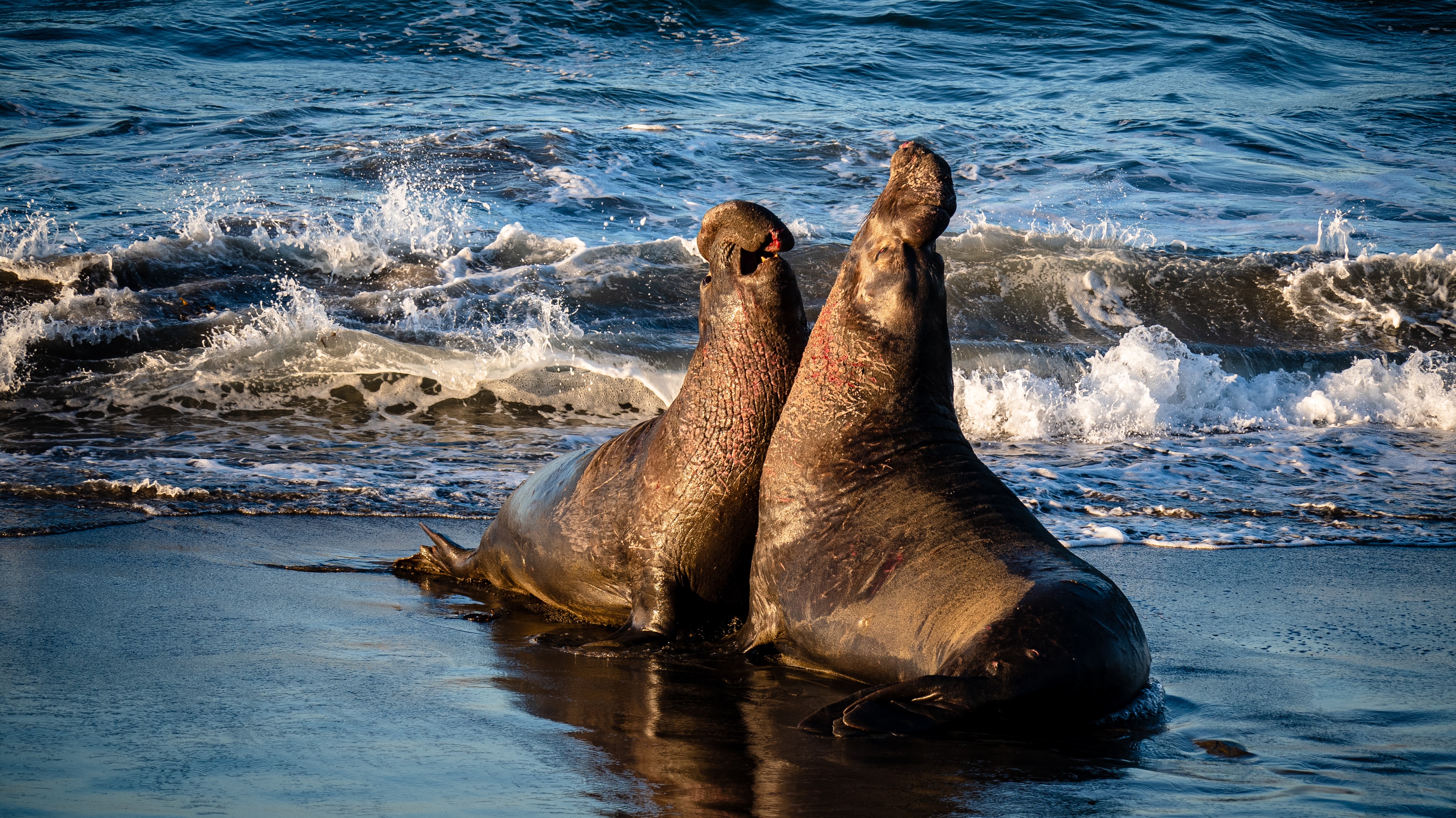News release
From:
The Royal Society
Seal for your supper – In situations of life or death, male northern elephant seals choose food. Researchers analysed a decadal dataset on movement patterns, dive behaviour, foraging success and mortality rates, finding male seals adopt a high-risk high reward strategy when foraging, gaining six times more mass, but with a six times higher mortality rate than females. Male seals prioritise gaining a high body mass to attract females, whereas females prioritise survival to reproduce annually over a long lifespan.
Journal/
conference:
Royal Society Open Science
Organisation/s:
Baylor University, University of California
Funder:
This research was conducted as part of the Tagging of Pacific Predators program and supported in part by the National Ocean Partnership Program (N00014-02-1-1012); the Office of Naval Research (N00014-00-1-0880, N00014-03-1-0651, N00014-08-1-1195), the E&P Sound and Marine Life Joint Industry Project of the International Association of
Oil and Gas Producers (JIP2207-23); the University of California Natural Reserve System, the NOAA Dr. Nancy Foster Scholarship Program, and the Moore, Packard and Sloan Foundations.



 International
International


